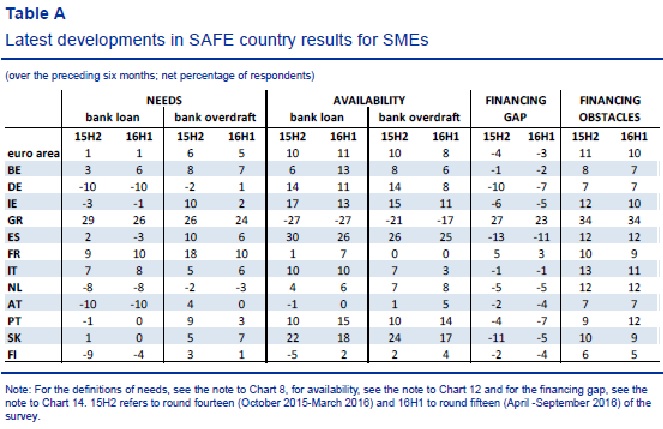Gali, Jordi, (2015), “Hysteresis and the European unemployment problem revisited”, ECB Forum on Central Banking, May The unemployment rate in the euro area appears to contain a significant non-stationary component, suggesting that some shocks have permanent effects on that variable. I explore possible sources of this non-stationarity through the lens of a New Keynesian model with unemployment, and assess their empirical relevance. Relevant Posts Fatás, Antonio, Summers, Lawrence, (2016), “Hysteresis and fiscal …Read More
Liquidity in government bonds – from the British Empire to the Eurozone
Chavaz, Matthieu, Flandreau, Marc, (2016), “Liquidity in government bonds – from the British Empire to the Eurozone”, VoxEu, 1 December Between 1870 and 1914, 68 countries – both sovereign and British colonies – used the London Stock Exchange to issue bonds. This column argues that bond prices and spreads in this period show that the colonies’ semi-sovereignty lowered credit risk at the price of higher illiquidity risk, and further worsened liquidity …Read More
Survey on the Access to Finance of Enterprises in the euro area – April to September 2016
European Central Bank, (2016), “Survey on the Access to Finance of Enterprises in the euro area – April to September 2016“, ECB, November This report presents the main results of the 15th round of the Survey on the Access to Finance of Enterprises (SAFE), which was conducted between 19 September and 27 October 2016. The total euro area sample size was 11,233 enterprises, of which 10,245 (91%) had fewer than …Read More
Can public support help Europe build distressed asset markets?
Lehmann, Alexander, (2016), “Can public support help Europe build distressed asset markets?”, Bruegel, 29 November Distressed asset investors can relieve banks of their NPL overhang and offer valuable restructuring expertise, although banks will need to realise a further valuation loss. Regulators could do a lot to support the growth of this market. Relevant Posts Panagiotarea, Eleni, (2016), “The Political Economy of NPLs resolution: Ownership and conditionality”, Hellenic Observatory LSE, 13 October …Read More
Globalisation fears weigh heavily on European voters
De Vries, Catherine, Hoffmann, Isabell, (2016), “Globalisation fears weigh heavily on European voters”, Bertelsmann Stiftung, 30 November Protest voters and populist politicians are shaking up the long-established political majorities in Europe and the USA. But what prompts voters to back parties who claim that they alone represent the interests of the people and are challenging the so-called establishment? A representative EU opinion poll attempts to uncover the reasons. Relevant Posts A. …Read More
Self-fulfilling dynamics: the interactions of sovereign spreads, sovereign ratings and bank ratings during the euro financial crisis
D. Gibson, Heather, G. Hall, Stephen, S. Tavlas, George, (2016), “Self-fulfilling dynamics: the interactions of sovereign spreads, sovereign ratings and bank ratings during the euro financial crisis”, Bank of Greece, 30 November During the euro-area financial crisis, interactions among sovereign spreads, sovereign credit ratings, and bank credit ratings appeared to have been characterized by selfgenerating feedback loops. To investigate the existence of feedback loops, we consider a panel of five …Read More
What impact does the ECB’s quantitative easing policy have on bank profitability?
Demertzis, Maria, B.Wolff, Guntram, (2016), “What impact does the ECB’s quantitative easing policy have on bank profitability?”, Bruegel, 30 Νοεμβρίου This Policy Contribution shows that the effect of the ECB’s QE programme on bank profitability has not yet had a dramatically negative effect on bank operations. Relevant Posts Hüttl, Pia, Merler, Silvia, (2016), “An update: Sovereign bond holdings in the euro area – the impact of QE”, Bruegel, 22 November S. Blattner, Tobias. A. …Read More
Europe’s Secret Bailout
Sinn, Hans-Werner, (2016), “Europe’s Secret Bailout”, Project Syndicate, 28 November While the world worries about Donald Trump, Brexit, and the flow of refugees from Syria and other war-torn countries, the European Central Bank continues to work persistently and below the public radar on its debt-restructuring plan – also known as quantitative easing (QE) – to ease the burden on over-indebted eurozone countries. Relevant Posts Hüttl, Pia, Merler, Silvia, (2016), “An update: Sovereign …Read More
Why we need a positive fiscal stance for the Eurozone and what it means
Buti, Marco, Rodríguez Muñoz, Lucía, (2016), “Why we need a positive fiscal stance for the Eurozone and what it means”, VoxEu, 28 November With growth still weaker than is desirable and challenges originating from geopolitical developments further complicating the economic outlook, responsible growth-friendly fiscal policy needs to play a bigger role in supporting demand in the Eurozone today. This column presents a new European Commission Communication on Eurozone fiscal policy, …Read More
Fiscal space and low interest rates: A Eurozone perspective
Buti, Marco, Carnot, Nicolas, (2016), “Fiscal space and low interest rates: A Eurozone perspective”, VoxEu, 28 November The European Commission has just called for a fiscal stance that is more supportive of the recovery and of monetary policy in the Eurozone. This column argues that the case is strong for spending now on investment and other targeted programmes supporting growth and employment. However, fiscal space is heterogeneously distributed across the …Read More





